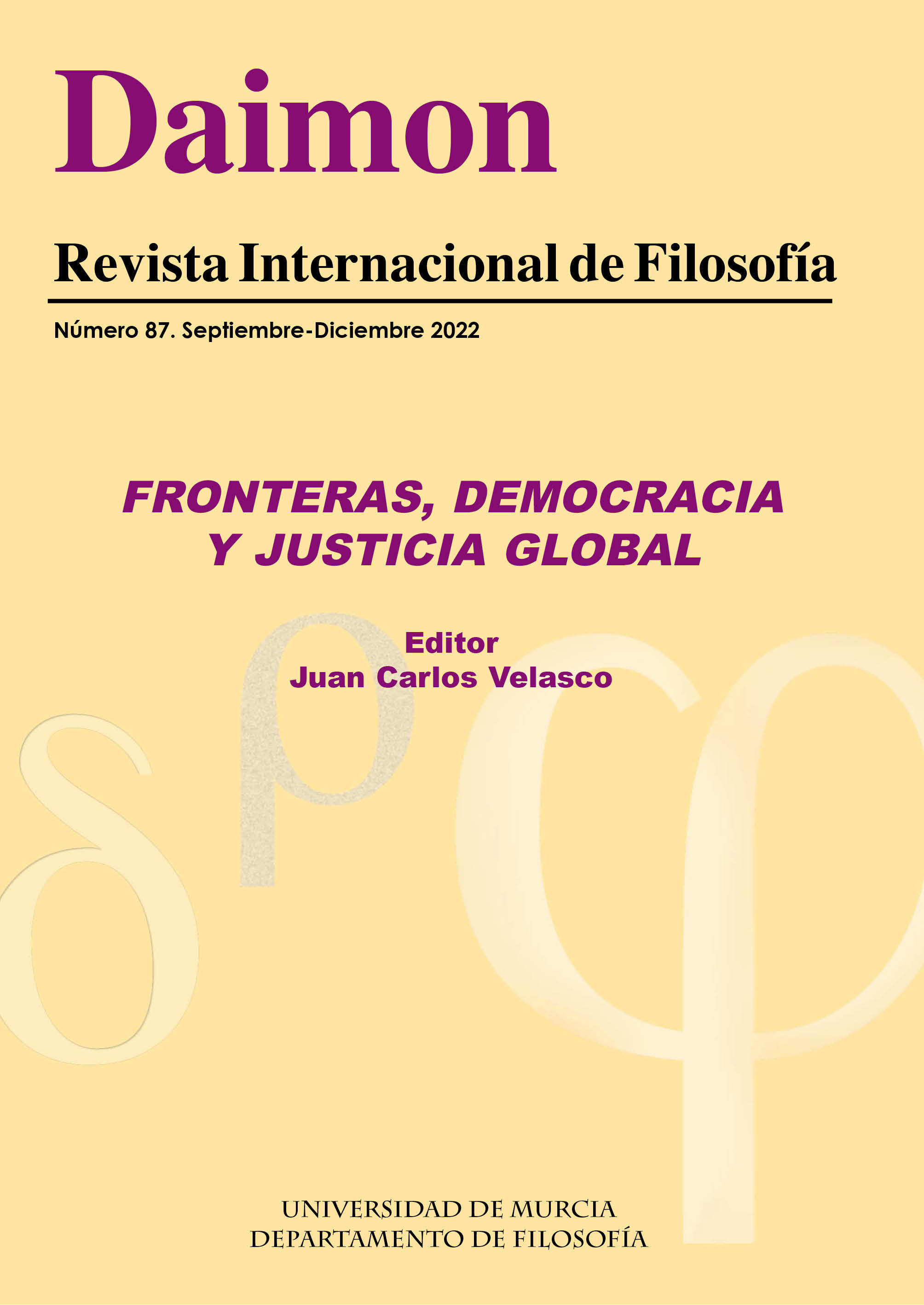Empujados a los márgenes. Observaciones sobre las fronteras nacionales y de clase
Abstract
This article focuses on the concept of marginalization. In doing so, it questions the dualist paradigm that dominates contemporary political philosophy, centered on dichotomies such as national/foreigner, citizen/migrant, on this side of the border/on the other side of the border, and adopts a global paradigm centered on the center/periphery dialectic, taking up central ideas from dependency and world-system theories. It argues that it is not only national borders that divide the world population according to arbitrary criteria and that class borders play the same role within national societies. In both cases, individuals are not excluded from the economic, political and social sphere, but are pushed to its margins. The description of life at the margins should help us to rethink the global organization of the capitalist economy and the relations between center and periphery.
Downloads
-
Abstract603
-
PDF (Español (España))372
-
HTML (Español (España))498
References
Amin, S. (1976), Unequal Development, Monthly Review Press.
Arrighi, G. (2010), The Long Twentieth-Century. Updated edition. Verso Books.
Baran, P. A. (1957), The Political Economy of Growth, Monthly Review Press.
Bateson G., Jackson D.D., Haley J., Weakland J. (1956), “Toward a theory of schizophrenia”, Behavioral Science, 1, 251-264.
Chang, H.-J. (2002), Kicking Away the Ladder, Anthem Press.
Daniels, G. (2020). Uncounted, NYU Press.
Desai, K. (2007), The Inheritance of Loss, Penguin.
Eribon, D. (2013), Returning to Reims, Semiotext(e).
Farwell, J. P. (2014). “The media strategy of ISIS”. Survival, 56(6), 49-55.
Frank, A. G. (1967), Capitalism and Underdevelopment in Latin America, revised edition, Monthly Review Press.
Frase, P. (2016). Four Visions, Verso
Friedman, T. L. (2005), The World is Flat, Farrar, Straus and Giroux.
Haggard, S., Kim, B. K., Moon, C. I. (1991), “The transition to export-led growth in South Korea: 1954–1966”. In The Journal of Asian Studies, 50(4), 850-873.
Hahnel, R.; Wright, E. O. (2016), Alternatives to Capitalism, Verso.
Hegel, G. F. W. (1991), Elements of the Philosophy of Right, Cambridge University Press.
Hochschild, A. R. (2016), Strangers in Their Own Land, The New Press.
Kardulias, P. N., & Hall, T. D. (2007), “A world-systems view of human migration past and present”, Forum on Public Policy, 1-33.
Kim, K. S. (1974), Outward-looking industrialization strategy, Korea Development Institute.
Lin, J. Y., Cai, F., Li, Z. (1996), The China Miracle, Chinese University Press.
Martin, W.G. (ed.) (1990), Semiperipheral States in the World-Economy, Greenwood Press.
Martins, J. de S. (1997), Exclusão social e a nova desigualdade, Paulus.
Mezzadra, S.; Neilson, B. (2013). Borders as Method. Duke University Press.
Ōmae, K. (1990), The Borderless World, Harper Business.
Rocha, J. C. de C. (2006), “A guerra de relatos no Brasil contemporâneo, ou: ‘a dialética da marginalidade’”, Letras, (32), 23–70.
Scullion, L.; Brown, P. (2016), “Understanding the social exclusion of Roma”. In: Ahmed, A.; Rogers, M. (eds.), Working with Marginalised Groups, Palgrave Macmillan, 70-85.
Schweickart, D. (2002), After Capitalism, Rowman & Littlefield.
Shachar, A. (2009), The Birtright Lottery, Harvard University Press.
Wallerstein, I. M. (1984), The Politics of the World-Economy, Cambridge University Press.
Wallerstein, I. M. (2004), World-Systems Analysis, Duke University Press.
Zhao, T. (2021), All Under Heaven, University of California Press.
Copyright (c) 2022 Daimon Revista Internacional de Filosofia

This work is licensed under a Creative Commons Attribution-NonCommercial-NoDerivatives 3.0 Unported License.
Las obras que se publican en esta revista están sujetas a los siguientes términos:
1. El Servicio de Publicaciones de la Universidad de Murcia (la editorial) conserva los derechos patrimoniales (copyright) de las obras publicadas, y favorece y permite la reutilización de las mismas bajo la licencia de uso indicada en el punto 2.
2. Las obras se publican en la edición electrónica de la revista bajo una licencia Creative Commons Reconocimiento-NoComercial-SinObraDerivada 3.0 España (texto legal). Se pueden copiar, usar, difundir, transmitir y exponer públicamente, siempre que: i) se cite la autoría y la fuente original de su publicación (revista, editorial y URL de la obra); ii) no se usen para fines comerciales; iii) si remezcla, transforma o crea a partir del material, no podrá distribuir el material modificado.
3. Condiciones de auto-archivo. Se permite y se anima a los autores a difundir electrónicamente las versiones pre-print (versión antes de ser evaluada) y/o post-print (versión evaluada y aceptada para su publicación) de sus obras antes de su publicación, ya que favorece su circulación y difusión más temprana y con ello un posible aumento en su citación y alcance entre la comunidad académica. Color RoMEO: verde.











